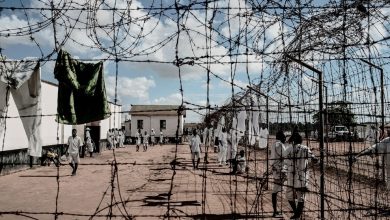Our national love for freebies
Besides our purported warm-heartedness, another characteristic that defines us, as Malawians, is our for love free things. We want donors to fund our schools; pay for our healthcare, construct our infrastructure, re-engineer our energy, babysit our economy; in fact, we believe it is their duty to develop Malawi for our benefit.
We want our children to learn for free, we are reluctant to pay at the hospital… Even Cashgate is a manifestation of a society that wants to benefit by free things.
Young people paint themselves silly to get some freebies from politicians; some women will wriggle their torsos and delude themselves that that is enough exertion for politicians to pay.
To the long list of people who want to benefit for free we must add Moses Dossi—erstwhile minister of sports and one term member of Parliament—who has a proposal so preposterous it reads like it was made by a man barely surviving on the fringes of reason.
Almost two months after playing the advocate for GwandaChakuamba over his destitution, Dossi is back begging a financially overstretched government to include former Cabinet ministers and MPs—who have fallen out of grace and on hard times—to be considered for a pension scheme, just like former presidents and vice-presidents.
Now, we may not like all our presidents and vice-presidents, but they are exceptional people; ministers and MPs, on the other hand, are ordinary people doing extraordinary functions at the requests of the president and their constituents.
While a case could be made for MPs as they have a fixed mandate within which they can perform their duties, a minister is a person who serves, to quote the famous phrase, at the pleasure of the president. A minister could be appointed today and fired in two weeks’ time. By Dossi’s reckoning, this is the one person deserving of a pension.
Other than poking their noses into businesses way beyond their knowledge (for most of them), reading speeches at workshops (which they barely understand) and cruising around in fuel guzzling four-by-fours, what essentially do ministers do? And what was the enduring contribution to Malawi that Dossi made as minister of sports?
One assumes that before going into government or politics, these ministers and MPs had a life—a career from which they rose. They were not just plucked off the streets. For instance, Henry Phoya and Ralph Kasambara were lawyers before they became politicians; they simply went back when their careers in politics went south.
Dr Maxwell Mkwezalamba, an economist, was minister of finance in May 2014, jobless by June 2014 but he is with the IMF now.
Dossi was a sports journalist, the ‘man on the touchline’, and a publisher. Today, he is turned himself into an activist for a lost cause. Or is it way beyond him to do journalism? Journalism may not pay as much as a ministerial post, but it is better than sitting home lamenting about the so-called neglect by government.
Maybe Dossi should have been asking what is wrong with some politicians—more especially the post-1994 generation of politicians—who, barely two weeks out of government, will be pushing and shoving with ordinary folk to get into a minibus.
Perhaps, if they acted like individuals with a spine, like patriots when in power and not as mere appendages of their leaders, sycophantically parroting everything their leaders say, they would distinguish themselves and become useful when their day in politics is gone.



I like this article, it has put forward reasonable criticisms of our former Ministers and the like.